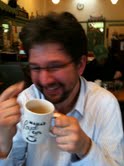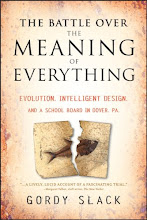Yesterday would have been Martin Luther King’s 82nd birthday. King’s practice of compassionate non-violence had many roots, but one was the Gandhian notion of satyagraha, which is a Sanskrit word that means something like “strength in truth.” The truth Gandhi referred to was that human beings are inextricably connected to each other, not just because we matter to one another, but for deeper, more fundamental reasons. And that is as true of our enemies as it is of our allies. At least Gandhi and King thought so. Contemplating the importance of King’s legacy, and the value of empathy (both the adaptive value in an evolutionary sense and the social value), I asked the excellent UCLA neuroscientist and physician Marco Iacoboni whether he thought that we could strengthen our own mirror neurons and thus our ability to empathize with others. Here is Iacoboni’s reply:
First of all, we know that neurons tend to be extraordinarily plastic, they can adapt and change their properties on the basis of experience. It would be an anomaly if mirror neurons did not have similar properties. More specifically, there is some circumstantial evidence that mirror neurons can be altered by use. In monkeys, tool-use mirror neurons (say, a grasping cell that responds to the sight of somebody using a tool to grasp an object) had not been observed for many years, but recently they have been recorded. Event though we cannot be sure they weren't already there, it is likely that the repeated observation of tool use actions generated these properties in these neurons. Also, when monkeys are trained to use reverse pliers (that is, pliers that require the monkey to open the fingers, rather than closing them), the neurons that used to fire for closing the fingers when the monkey used the regular pliers, also fire when the monkey opens the fingers while using the reverse pliers. Mirror neurons (that is, the subset of motor neurons that also respond to the sight of these actions) follow the same pattern.In other words, one reliable way to cultivate empathy, in ourselves and in our children, is to practice it.
In humans, imaging studies show that ballet dancers activate premotor regions more when they watch ballet video clips compared to capoeira video clips. Capoeira dancers do the opposite, they activate more premotor regions while watching capoeira video clips. In another study, ballerinas activate premotor regions more when they watch moves that only female dancers make, and male dancers activate premotor regions more when they watch male moves (like lifting a ballerina).
Transcranium magnetic stimulation (TMS) reveals similar evidence. Motor activation is higher in basketball players when they watch basketball, compared to non players. We published a study few years ago that shows that American subjects activate the motor system more when they watch an American making gestures than they do when watching a Nicaraguan.
Taken together, both theoretical considerations and empirical data suggest that mirror neurons can be altered by use. This is potentially extremely important for interventions, for instance in autism.
But in principle, we can all become more empathic by training more mirror neurons.
If your interested in more, by all means check out his fascinating book Mirroring People.
Here's another radical quote by a famously empathic person:
You know, there's a lot of talk in this country about the federal deficit. But I think we should talk more about our empathy deficit -- the ability to put ourselves in someone else's shoes; to see the world through the eyes of those who are different from us -- the child who's hungry, the steelworker who's been laid-off, the family who lost the entire life they built together when the storm came to town. When you think like this -- when you choose to broaden your ambit of concern and empathize with the plight of others, whether they are close friends or distant strangers -- it becomes harder not to act; harder not to help.That's the voice of Barach Obama.



No comments:
Post a Comment